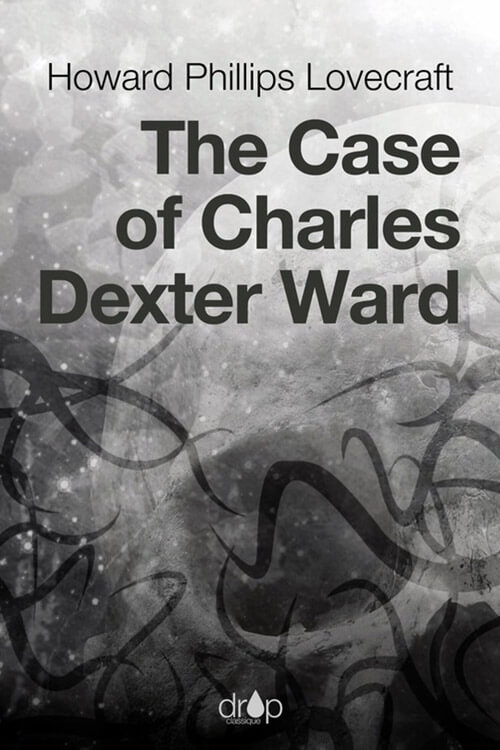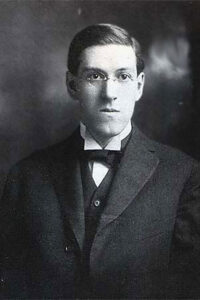
The Case of Charles Dexter Ward
The odd thing was that Ward seemed no longer interested in the antiquities he knew so well. He had, it appears, lost his regard for them through sheer familiarity, and all his final efforts were obviously bent toward mastering those common facts of the modern world which had been so totally and unmistakably expunged from his brain. That this wholesale deletion had occurred, he did his best to hide. Still, it was clear to all who watched him that his whole programme of reading and conversation was determined by a frantic wish to imbibe such knowledge of his own life and the ordinary practical and cultural background of the twentieth century as ought to have been his by his birth in 1902 and his education in the schools of our own time. Alienists are now wondering how, because of his vitally impaired range of data, the escaped patient manages to cope with the complicated world of today, the dominant opinion being that he is “lying low” in some humble and unexacting position till his stock of modern information can be brought up to the normal.
The beginning of Ward’s madness is a matter of dispute among alienists. Dr Lyman, the eminent Boston authority, places it in 1919 or 1920, during the boy’s last year at the Moses Brown School when he suddenly turned from the study of the past to the study of the occult and refused to qualify for college on the ground that he had individual researches of much greater importance to make. This is certainly borne out by Ward’s altered habits at the time, especially by his continual search through town records and among old burying grounds for a particular grave dug in 1771: the grave of an ancestor named Joseph Curwen, some of whose papers he professed to have found behind the panelling of an ancient house in Olney Court, on Stampers’ Hill, which Curwen was known to have built and occupied. Undeniably, the winter of 1919-20 saw a significant change in Ward, where he abruptly stopped his general antiquarian pursuits and embarked on a desperate delving into occult subjects both at home and abroad, varied only by this strangely persistent search for his forefather’s grave.
In this opinion, however, Dr. Willett substantially dissents, basing his verdict on his close and continuous knowledge of the patient and on certain frightful investigations and discoveries that he made toward the last. Those investigations and discoveries have left their mark upon him, so that his voice trembles when he tells them, and his hand trembles when he tries to write about them.
Read or download Book
Howard Phillips Lovecraft
Howard Phillips Lovecraft (August 20, 1890 – March 15, 1937) was an American writer of weird, science, fantasy, and horror fiction. He is best known for his creation of the Cthulhu Mythos.
Biography.
Born in Providence, Rhode Island, Lovecraft spent most of his life in New England. After his father’s institutionalization in 1893, he lived affluently until his family’s wealth dissipated after the death of his grandfather. Lovecraft then lived with his mother, in reduced financial security, until her institutionalization in 1919. He began to write essays for the United Amateur Press Association, and in 1913, wrote a critical letter to a pulp magazine that ultimately led to his involvement in pulp fiction. He became active in the speculative fiction community and was published in several pulp magazines. Lovecraft moved to New York City, marrying Sonia Greene in 1924, and later became the centre of a wider group of authors known as the “Lovecraft Circle”. They introduced him to Weird Tales, which would become his most prominent publisher. Lovecraft’s time in New York took a toll on his mental state and financial conditions. He returned to Providence in 1926 and produced some of his most famous works, including The Call of Cthulhu, At the Mountains of Madness, The Shadow over Innsmouth, and The Shadow Out of Time. He would remain active as a writer for 11 years until his death from intestinal cancer at the age of 46.
Lovecraft’s literary corpus is based on the idea of cosmicism, which was simultaneously his philosophy and the central theme of his fiction. Cosmicism posits that humanity is an insignificant part of the cosmos and could be swept away at any moment. He incorporated fantasy and science fiction elements into his stories, representing the perceived fragility of anthropocentrism. This was tied to his ambivalent views on knowledge. His works were primarily set in a fictionalized version of New England. Civilizational decline also plays a significant role in his works, as he believed that the West was in decline during his lifetime. Lovecraft’s early political views were conservative and traditionalist; additionally, he held many racist opinions for much of his adult life. Following the Great Depression, Lovecraft’s political views became more socialist while remaining elitist and aristocratic.
Throughout his adult life, Lovecraft could never support himself from his earnings as an author and editor. He was virtually unknown during his lifetime and was almost exclusively published in pulp magazines before his death. A scholarly revival of Lovecraft’s work began in the 1970s, and he is now regarded as one of the most significant 20th-century authors of supernatural horror fiction. Many direct adaptations and spiritual successors followed. Works inspired by Lovecraft, adaptations or original works, began to form the basis of the Cthulhu Mythos, which utilizes Lovecraft’s characters, setting, and themes.






